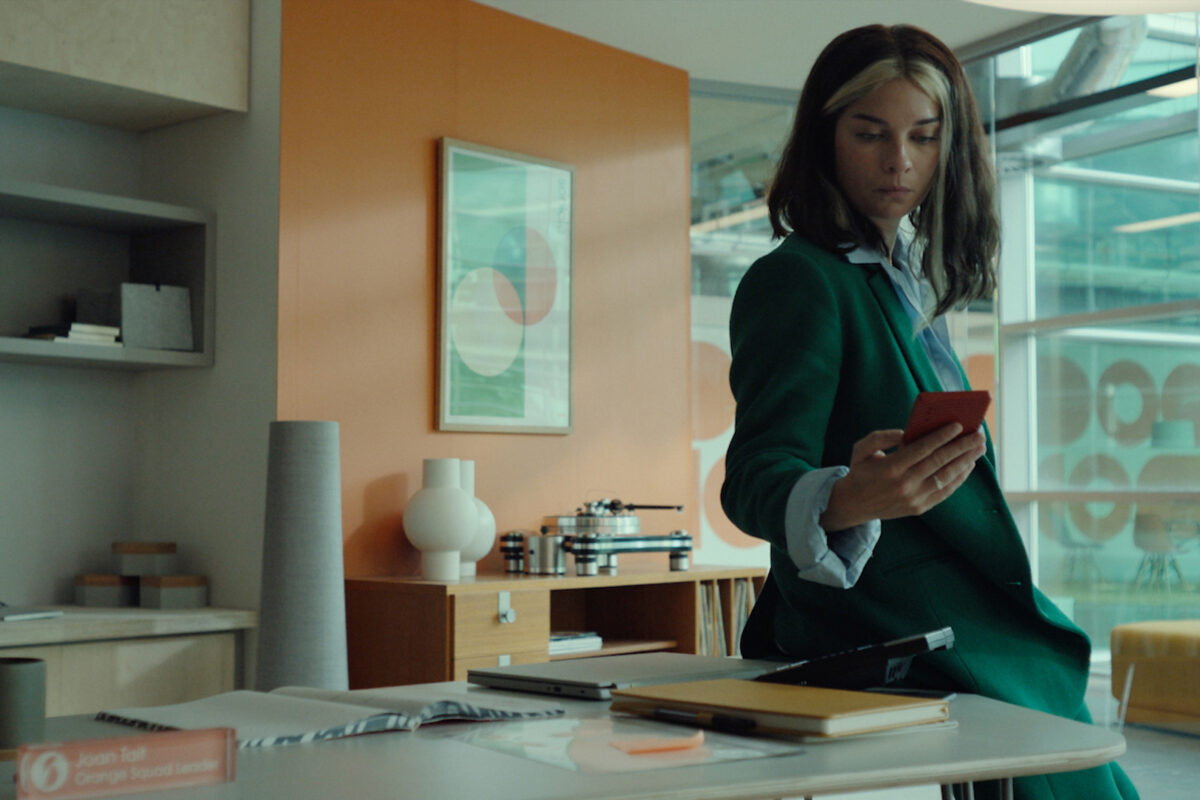
[Editor’s Note: The following review contains spoilers for all five episodes of “Black Mirror” Season 6.]
For a moment, it looked like “Black Mirror” Season 6 was going to douse its Trojan Horse in gasoline and drop a match. The first episode of the anthology series’ new, long-gestating batch puts Netflix in its sights from the outset, using the platform’s typeface and interface to tell a story about, well, faces. “Joan is Awful” is another in the show’s “ripped from the WIRED headlines” approach to technology. After a relatively long time away, its welcome back message boils down to the idea that anyone can be content, with or without their permission.
It’s a potent idea for a changing age, one now filled with massive sectors of the entertainment industry undergoing a work stoppage to fight the very trends that this episode puts forth as a potential reality. It’s also messy in its execution, true to recent “Black Mirror” form, capped off by twist that works better as a germ of an idea (and one that ultimately gives way to a sense of security, however false it may be).
Episode 2 “Loch Henry” might be the season’s high-water mark. It uses a pair of young documentary filmmakers (Myha’la Herrold and Samuel Blenkin) as proxies for the thorny questions around true crime storytelling. By the time it ends, “Loch Henry” has managed to implicate people and institutions at every level, especially those who seek to profit off the trauma of others.
The resulting message from these first two chapters: Netflix is not your friend, and the very platform you’re watching might be the biggest force for what the early seasons of the show warned against. That’s the kind of jolt to the system that a 12-year-old project needs at this point. What better use of creative capital could there be than to use your show about the dangers of tech than to remind everyone that the call is coming from inside the house?

Yet, after that promising start, “Black Mirror” Season 6 takes its own nosedive. It doesn’t happen right away in “Beyond the Sea,” a feature-length domestic drama of jealousy and loss that takes place partially in space. Quieter stories aren’t at odds with this show’s goals, and Aaron Paul infuses the show with some patience and calm that a better episode would really benefit from. Yet the eventual, repetitive, obvious turns in the back half of the episode are in line with the artificial small-town rural environment it’s set out for itself. It’s cloaked in a vague sense of retrofuturism, the kind of grey area between living off the grid and being completely plugged in. “Black Mirror” starts the Season 6 slide toward gesturing at its most interesting ideas without really doing anything beyond surface level.
Maybe the most frustrating installment of Season 6 finds the show at its most and least inspired. “Mazey Day” is a return to the early-internet naivete of the mid-aughts, loaded with iPod Shuffles and songs that sound like they would have played in commercials for iPod Shuffles. Whether intentional or not, an episode following a desperate member of the papparazzi (Zazie Beetz) ends up being the most surface-level of them all, with flimsy roommates and coworkers and diner waiters who are simply cogs in a showbiz satire machine that barely runs. It’s what makes the last ten minutes of “Mazey Day,” an idea that feels like something Brooker’s been sitting on for a while, both an inspired addition to the show and a mark of desperation. A sliver of the show’s early out-of-nowhere excitement only shows how much of the episode before it is thumb-twiddling table-setting, a prelude to a disconnected showcase of a different kind of horror.
The further Season 6 goes, the more it stands out that the show still has different palettes and moods without anything feeling genuinely distinctive. The visual personality that’s peeked through in some of the show’s best episodes — the handheld immediacy of “White Bear,” the black-and-white dread of “Metalhead” — has been largely smoothed out here. The fragmented, Muse-fueled flashbacks in “Mazey Day” end up being a misdirecting gimmick. Even the stark, crackling film stock and long-lens searching of the opening minutes of “Demon 79” gives way to a generic 1970s-ness that signals more an exercise than an experiment.

It doesn’t help that the rest of “Demon 79” drifts into a low-stakes execution of a high-stakes premise. “We are Lady Parts” breakout star Anjana Vasan gets across the terror and anxiety of someone tasked with saving the world, and Paapa Essiedu gets a little bit of freedom to play around with being a messenger from the spirit realm. Much of the rest seems locked into a familiar cat-and-mouse game of rules and technicalities and easy moralizing where the most interesting story is playing out entirely through newspaper headlines. Like “Mazey Day,” “Demon 79” makes the decision to leave its own sci-fi sandbox and veer into something less definable. It would be a drastic, thrilling revamp for the show if there was anything behind the effort apart from finding new spooky means to an end.
The throughline for the early “Black Mirror” seasons was a sense of dread or anxiety over a changing world. That could come from an artist trying to use cable news as a canvas or a vision of a society where people and fame were measurable commodities or where your memories could be both indexed and deleted with a few taps of a button. In a way, the show has morphed to use fear as a vague catch-all. Maybe that manifests in the supernatural or the anxiety that your coworker might be in love with your spouse, but at this point “Black Mirror” feels like it sees its original, motivating premise as more a hindrance than an opportunity.
Season 6 ends in a ball of fire, a tongue-in-cheek parting shot that would have more power if it was more of an exclamation point than an ellipse. The final moments of “Black Museum” (the last time the show presented what felt like its own eulogy) had a similar winking nature, but that had the force of a genuinely unsettling and potent “Arabian Nights”-style framing device leading up to it. Driving off in a plume of smoke still worked when there was gas left in the tank. When “Demon 79” cuts to black, “Black Mirror” is ending the world not as warning sign, but simply because it can. After that, where else is there to go next?
“Black Mirror” Season 6 is now available to stream on Netflix.















